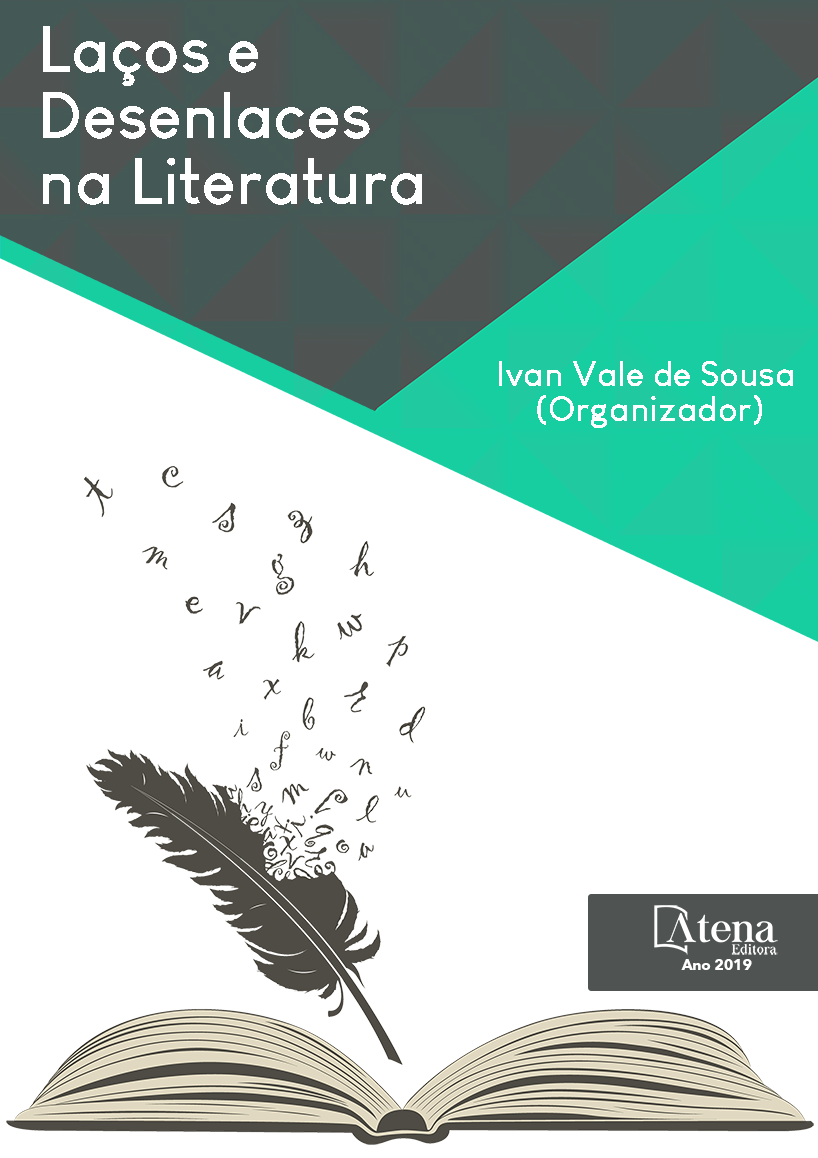
A APLICAÇÃO DO “LIVRO-JOGO” EM AULAS DE LÍNGUA PORTUGUESA DO ENSINO FUNDAMENTAL II
O presente capítulo busca relatar
e inspirar outros docentes atuantes do Ensino
Fundamental II quanto à aplicação do livro-jogo
em sala de aula. O estudo em questão é focado
na disciplina de Língua Portuguesa e constituiu
uma relevante experiência educacional por
trabalhar com leitura e jogo em sala de aula a
fim de oferecer aulas mais práticas e lúdicas de
leitura e produção textual. A ideia de jogo utilizada
teve como base os estudos de CAILLOIS (1990)
e HUIZINGA (1971), especificamente o RPG
- fundamentado em WASKUL; LUST (2004) -
e o livro-jogo - embasado em ALVES (1997)
e GREEN (2014). O conceito de adaptação
teve como fonte HUTCHEON (2013) e o de
hipertexto, GOMES (2010). Foi também tomada
como base para a avaliação das competências
a taxionomia de BLOOM et al (1972). A elevação
do interesse pela matéria pode ser percebida
pelo fato de os alunos trabalharem mais com
síntese do que conhecimento e compreensão,
o que rendeu produções textuais de boa
qualidade. Essa competência pode ser posta
em prática graças a um projeto de adaptação de
clássicos literários para o formato de livro-jogo.
Mesmo sendo trabalho mais complexo do que
exercícios padronizados, esse projeto mostrouse
um relevante recurso pedagógico para a
sala de aula e uma possível alternativa para
promover a leitura para novos leitores, muitas
vezes desinteressados pelo que a escola lhes
oferece.
A APLICAÇÃO DO “LIVRO-JOGO” EM AULAS DE LÍNGUA PORTUGUESA DO ENSINO FUNDAMENTAL II
-
DOI: 10.22533/at.ed.9621924075
-
Palavras-chave: Livros-jogos; Ficção interativa; RPG; Produção textual; Leitura.
-
Keywords: Gamebooks; Interactive Fiction; RPG; Writing; Reading.
-
Abstract:
The present chapter seeks to
report and inspire other teachers in Elementary
School to apply the gamebook in the classroom.
The study in question is focused on the
discipline of Portuguese and it constituted a
relevant educational experience by working with
reading and playing in the classroom in order
to offer more practical and playful classes of
reading and writing. The idea of game used was
based on the studies of CAILLOIS (1990) and
HUIZINGA (1971), specifically the RPG - based
on WASKUL; LUST (2004) - and the gamebook
- based on ALVES (1997) and GREEN (2014).
The concept of adaptation had its source in
HUTCHEON (2013) and hypertext, in GOMES
(2010). The taxonomy of BLOOM et al (1972)
was also taken as the basis for the evaluation
of competences. The elevation of interest in this subject can be perceived by the fact
that the students work more with synthesis than knowledge and understanding, which
yielded good quality textual productions. This competence can be put into practice
thanks to a project of adaptation of literary classics to the gamebook format. Although
this work is more complex than standardized exercises, this project has proved to be a
relevant pedagogical resource for the classroom and a possible alternative to promote
reading for new readers, often uninterested in what the school offers them.
-
Número de páginas: 15
- Pedro Panhoca da Silva


